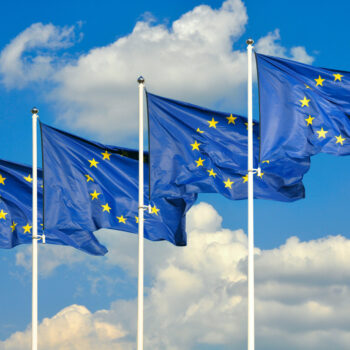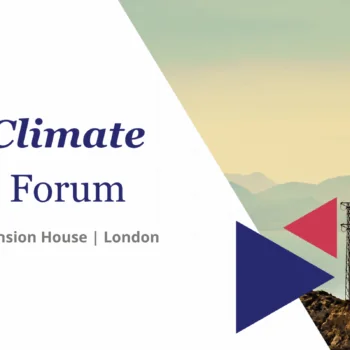As the dust settles after the historic adoption of the Paris 2015 agreement, E3G shares a short blog series exploring what Paris means to different sectors, regions and constituencies.
The Paris Agreement would never have been achieved if it weren’t for campaigners from across the political and professional spectrum. These campaigners could be found within cities, governments, non-governmental organisations, multilateral institutions, frontline climate impacted communities, businesses, investor institutions, political parties, youth organisations, informal networks and around kitchen tables. And we did it; we landed a Paris agreement that captured our energy, commitment and dedication to accelerate low carbon resilient transition.
But Paris is not a perfect agreement, nor is it a silver bullet. Campaigners are poised to start the battle of implementation. So, what does the Paris agreement mean for campaigners?
Empowerment
After the Copenhagen summit in 2009 failed to produce a celebrated outcome, many campaigners were cautious in their approach to Paris. The result from Paris should not rest firmly on the shoulders of its policy outcome, but the opportunity to accelerate action whilst climate was under the international spotlight was not to be missed. Mobilising climate action in the run up and run out of Paris was the top priority for campaigners. In broad terms the successful outcome we achieved was a bonus!
The Paris process showed a form of empowering multilateralism like we’ve never seen before. Traditional multilateral campaigning often focused on making demands of governments who would in turn show up and engage in intergovernmental negotiations to achieve an outcome. This time campaigners were far more demonstrable in their actions. They strived to make their institutions divest from fossil fuels, their cities and institutions go 100% renewables, reconsidered their business models, shifted their portfolios from dirty to clear and exposed the dark side of vested interests. Not only did they make climate action happen on the ground but they demonstrated to decision-makers that it was possible, inevitable and valued. The French and Peruvian presidencies also played an important brokering role bringing this message into the Paris process. The Lima Paris Platform for Action rolled out a series of announcements pledging immediate climate action, regardless of the Paris outcome, in the near-term.
The ingenuity and collaboration achieved by these campaigners was at the heart of adopting the Paris agreement. In its implementation it’s essential that we remember this. It’s only going to get more challenging as we unravel decades of entrenched political, social and economic norms. Our community, with all its faces, needs to feel empowered to carry us through to tougher, harder fights.
Accountability
The biggest ‘bonus’ of actually landing an agreement is that campaigners now have a new tool to hold their governments accountable. Campaigners can call them to account on implementing the policies spelled out in the text and can draw upon the information that countries are mandated to transparently report on their progress. There are a whole range of policies to hold parties accountable in the weeds of the text but here are 3 highlights:
- Countries are expected to limit temperature to well below 2°C and ‘to pursue efforts to limit the temperature increase to 1.5°C’. Until now countries have been grappling with the 2°C obligation but now they will be expected to review and positively reform their action plans to demonstrate ‘effort’ towards limiting temperature increase to 1.5°C. As EU Climate Commissioner Arias Cañete said this week, 1.5°C means full decarbonisation – this means reform at EU level is ‘at least’ inevitable.
- The job isn’t done until we balance the climate system and communities are resilient to climate impacts. This might sound obvious (as many of us learnt about the carbon cycle at school) but it’s only now that it’s internationally recognised that to cap warming at any level involves going to net zero emissions. To pursue those efforts for limiting warming to 1.5°C means decarbonising our economies and fast. At the same time countries also have to factor in the inevitability of climate impacts, and even at below 1.5°C these impacts aren’t easy to take. We have some strategies to deal with this but protecting against climate impacts and building resilience requires a lot more innovation in all our countries.
- Governments have to come back to the table every 5 years: This agreement spells out a process of cycles for upping ambition. Where countries (and if campaigners have anything to do about it, non-state actors too) come back to the table with increased ambition for mitigation, adaptation and finance action until we finish the job. Like Paris, achieving these national contributions to the international process will require sustained campaigning from all constituencies. These 5 year cycles can help foster peaks in creativity and persistence within the climate community.
Justice
To reiterate, decarbonising our economies whilst dealing with climate impacts is not going to be easy. Paris captured the technological, political and social progress on climate action to date but much of this has been relatively low hanging fruit. The renewables revolution has risen to prominence quietly and stealthily without impinging too strongly upon the operations of the fossil fuel giants. This is where things get tougher. The Paris agreement makes clear that this era is over; fossil fuels are on their way out. The transition will be challenging and there will be winners and losers in the process. And as with any struggle for human transformation it must go hand-in-hand with a struggle for justice.
Climate change is sadly not the only injustice the world faces and an orderly transition must also face these challenges. The poorest and most vulnerable commonly feel the worst of impacts. These impacts should be prepared for in a way that protects all people across society. In addition, humility and care must be taken when livelihoods, dependencies and skill-sets shift from fossil fuels to clean energy. These cultural norms are entrenched in families and communities as well as board rooms and governments.
At Paris the voice of the vulnerable shifted the balance of power in negotiations to land a much more powerful agreement than had previously been imagined. It is now up to campaigners at home to ensure the process of achieving low carbon resilient transition is just.


